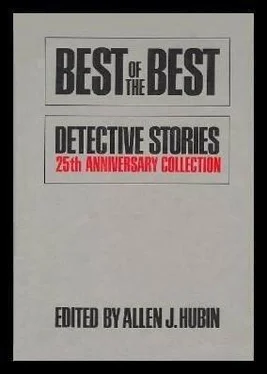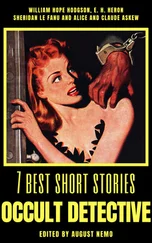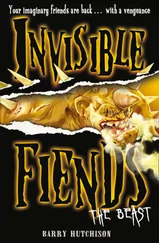Stephen Barr - Best of the best detective stories - 25th anniversary collection
Здесь есть возможность читать онлайн «Stephen Barr - Best of the best detective stories - 25th anniversary collection» весь текст электронной книги совершенно бесплатно (целиком полную версию без сокращений). В некоторых случаях можно слушать аудио, скачать через торрент в формате fb2 и присутствует краткое содержание. Город: New York, Год выпуска: 1971, ISBN: 1971, Издательство: E.P. Dutton & Co., Жанр: Детектив, на английском языке. Описание произведения, (предисловие) а так же отзывы посетителей доступны на портале библиотеки ЛибКат.
- Название:Best of the best detective stories: 25th anniversary collection
- Автор:
- Издательство:E.P. Dutton & Co.
- Жанр:
- Год:1971
- Город:New York
- ISBN:978-0-525-06450-3
- Рейтинг книги:5 / 5. Голосов: 1
-
Избранное:Добавить в избранное
- Отзывы:
-
Ваша оценка:
- 100
- 1
- 2
- 3
- 4
- 5
Best of the best detective stories: 25th anniversary collection: краткое содержание, описание и аннотация
Предлагаем к чтению аннотацию, описание, краткое содержание или предисловие (зависит от того, что написал сам автор книги «Best of the best detective stories: 25th anniversary collection»). Если вы не нашли необходимую информацию о книге — напишите в комментариях, мы постараемся отыскать её.
Best of the best detective stories: 25th anniversary collection — читать онлайн бесплатно полную книгу (весь текст) целиком
Ниже представлен текст книги, разбитый по страницам. Система сохранения места последней прочитанной страницы, позволяет с удобством читать онлайн бесплатно книгу «Best of the best detective stories: 25th anniversary collection», без необходимости каждый раз заново искать на чём Вы остановились. Поставьте закладку, и сможете в любой момент перейти на страницу, на которой закончили чтение.
Интервал:
Закладка:
Mr. Behrens had listened to this in silence, with a half-smile on his face.
Now he cleared his throat and said, “If this — um — ingenious theory is true, it does — um — suggest a way of drawing out the gentleman concerned, does it not?”
“I was very interested when you told me about this dene-hole,” said Colonel Bessendine to Mr. Behrens. “I had heard about them as a boy, of course, but I’ve never actually seen one.”
“I hope we shan’t be too late,” said Mr. Behrens. “It’ll be dark in an hour. You’d better park your car here. We’ll have to do the rest of the trip on foot.”
“I’m sorry I was late,” said Colonel Bessendine. “I had a job I had to finish before I go off tomorrow.”
“Off?”
“A short holiday. I’m taking my wife and daughter to France.”
“I envy you,” said Mr. Behrens. “Over the stile here and straight up the hill. I hope I can find it from this side. When I came here before I approached it from the other side. Fork right here, I think.”
They moved up through the silent woods, each occupied with his own, very different, thoughts.
Mr. Behrens said, “I’m sure this was the clearing. Look. You can see the marks of the workmen’s tractors. And this — I think — was the stump.”
He stopped, and kicked at the* foot of the elm hole. The loose covering pieces of turf on sticks, laid there by Arthur, collapsed, showing the dark entrance.
“Good Lord!” said Colonel Bessendine. He was standing, hands in raincoat pockets, shoulders hunched. “Don’t tell me that people used to live in a place like that?”
“It’s quite snug inside.”
“Inside? You mean you’ve actually been inside it?” He shifted his weight so that it rested on his left foot and his right hand came out of his pocket and hung loose.
“Oh, certainly,” said Mr. Behrens. “I found the body, too.”
There was a long silence. That’s the advantage of having a false face, thought Mr. Behrens. It’s unfair. You can do your thinking behind it, and no one can watch you actually doing it.
The lips cracked into a smile.
“You’re an odd card,” said Colonel Bessendine. “Did you bring me all the way here to tell me that?”
“I brought you here,” said Mr. Behrens, “so that you could explain one or two things that have been puzzling me.” He had seated himself on the thick side of the stump. “For instance, you must have known about this hideout, since you and Sergeant Brewer and Corporal Stubbs built it in 1940. Why didn’t you tell me that when I started describing it to you?”
“I wasn’t quite sure then,” said Colonel Bessendine. “I wanted to make sure.”
As he spoke his right hand moved with a smooth unhurried gesture into the open front of his coat and out again. It was now holding a flat blue-black weapon which Mr. Behrens, who was a connoisseur in such matters, recognized as a Zyanidpistole or cyanide gun.
“Where did they teach you that draw?” he said. “In the Marineamt? ”
For the first time he thought that the colonel was genuinely surprised. His face still revealed nothing, but there was a note of curiosity in his voice.
“I learned in Spain to carry a gun under my arm and draw it quickly,” he said. “There were quite a few occasions on which you had to shoot people before they shot you. Your own side, sometimes. It was rather a confused war in some ways.”
“I imagine so,” said Mr. Behrens. He was sitting like a Buddha in the third attitude of repose, his feet crossed, the palms of his hands pressed flat, one on each knee. “I only mentioned it because some of my colleagues had a theory that you were a German agent called Hessel.”
In the colonel’s eyes a glint of genuine amusement appeared for a moment, like a face at the window, and ducked out of sight again.
“I gather that you were not convinced by this theory?”
“As a matter of fact, I wasn’t.”
“Oh. Why?”
“I remember what your daughter told me. That you used to crawl up alongside a hedge running from the railway line to the private cricket ground at the big house. I went along and had a look. You couldn’t crawl up along the hedge now. It’s too overgrown. But there is a place at the top — it’s hidden by the hedge, and I scratched myself damnably getting into it — where two bars are bent apart. A boy could have got through them easily.”
“You’re very thorough,” said the colonel. “Is there anything you haven’t found out about me?”
“I would be interested to know exactly when you started betraying your country. And why. Did you mean to do it all along and falling in with Hessel and killing him gave you an opportunity — the wireless and the codes and the call signs—?”
“I can clearly see,” said the colonel, “that you have never been blown up. Really blown to pieces, I mean. If you had been, you’d know that it’s quite impossible to predict what sort of man will come down again. You can be turned inside out, or upside down. You can be born again. Things you didn’t know were inside you can be shaken to the top.”
“Saul becoming Paul, on the road to Damascus.”
“You are an intelligent man,” said the colonel. “It’s a pleasure to talk to you. The analogy had not occurred to me, but it is perfectly apt. My father was a great man for disciplining youth, for regimentation, and the New Order. Because he was my father, I rebelled against it. That’s natural enough. Because I rebelled against it, I fought for the Russians against the Germans in Spain. I saw how those young Nazis behaved. It was simply a rehearsal for them, you know. A rehearsal for the struggle they had dedicated their lives to. A knightly vigil, if you like. I saw them fight, and I saw them die. Any that were captured were usually tortured. I tortured them myself. If you torture a man and fail to break him, it becomes like a love affair. Did you know that?”
“I, too, have read the works of the Marquis de Sade,” said Mr. Behrens. “Go on.”
“When I lay in hospital in the darkness with my eyes bandaged, my hands strapped to my sides, coming slowly back to life, I had the strangest feeling. I was Hessel, I was the man I had left lying in the darkness at the bottom of the pit. I had closed his eyes and folded his hands, and now I was him. His work was my work. Where he had left it off, I would take it up. My father had been right and Hitler had been right and I had been wrong. And now I had been shown a way to repair the mistakes and follies of my former life. Does that sound mad to you?”
“Quite mad,” said Mr. Behrens. “But I find it easier to believe than the rival theory — that the accident of having a new face enabled you to fool everyone for twenty-five years. You may have had no family, but there were school friends and Army friends and neighbors. But I interrupt you. When you got out of the hospital and decided to carry on Hessel’s work, I suppose you used his wireless set and his codes?”
“Until the end of the war, yes. Then I destroyed them. When I was forced to work for the Russians I began to use other methods. I’m afraid I can’t discuss them, even with you. They involve too many other people.”
In spite of the peril of his position, Mr. Behrens could not suppress a feeling of deep satisfaction. Not many of his plans had worked out so exactly. Colonel Bessendine was not a man given to confidences. A mixture of carefully devised forces was now driving him to talk. The time and the place; the fact that Mr. Behrens had established a certain intellectual supremacy over him; the fact that he must have been unable, for so many years, to speak freely to anyone; the fact that silence was no longer important, since he had made up his mind to liquidate his audience. On this last point Mr. Behrens was under no illusions. Colonel Bessendine was on his way out. France was only the first station on a line which led to Eastern Germany and Moscow.
Читать дальшеИнтервал:
Закладка:
Похожие книги на «Best of the best detective stories: 25th anniversary collection»
Представляем Вашему вниманию похожие книги на «Best of the best detective stories: 25th anniversary collection» списком для выбора. Мы отобрали схожую по названию и смыслу литературу в надежде предоставить читателям больше вариантов отыскать новые, интересные, ещё непрочитанные произведения.
Обсуждение, отзывы о книге «Best of the best detective stories: 25th anniversary collection» и просто собственные мнения читателей. Оставьте ваши комментарии, напишите, что Вы думаете о произведении, его смысле или главных героях. Укажите что конкретно понравилось, а что нет, и почему Вы так считаете.












